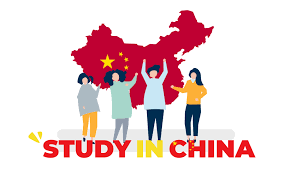Overview
In the past decade, the global map of higher education has been quietly redrawn. While American universities have long been considered the world’s leading academic destinations, political shifts in the United States; particularly the Trump Administration’s protectionist policies and restrictions on international students are changing that balance.
At the same time, China has seized this moment to position itself as a global education powerhouse, expanding scholarships, boosting investment in research, and welcoming more international students; especially from Africa and the Global South.
This shift signals more than a change in rankings; it represents a transformation in where the world’s brightest minds are choosing to study, collaborate, and build their futures.
China’s Expanding Investment in Education and Research
Over the last decade, China has made higher education a pillar of its national development strategy. The Chinese government has steadily increased funding for science, technology, and innovation; areas seen as key to the country’s long-term competitiveness.
Between 2018 and 2020, Chinese researchers produced nearly a quarter of all scientific publications worldwide, surpassing the U.S. in total research output. Today, universities like Tsinghua University, Peking University, and Zhejiang University are among the top 50 in the world, with Tsinghua now ranking 11th globally, ahead of many established Western institutions.
These achievements are the result of deliberate policy: China’s “Double First-Class” initiative, launched in 2017, and continuous scholarship programs that attract top domestic and international talent.
The U.S. Retreat and Its Global Consequences
In contrast, recent U.S. policies have created uncertainty for international students and researchers. Restrictions on student visas, research funding cuts, and increased political interference in universities have discouraged many foreign scholars.
During the Trump Administration’s previous terms, thousands of Chinese students were denied visas, and numerous partnerships between U.S. and Chinese universities were suspended due to “national security” concerns.
This has triggered a reverse migration of talent, with many Chinese scholars returning home and global students exploring alternative destinations. The result? The U.S. is gradually losing its once-unquestioned dominance in education and innovation.
China’s New Role in Global Education
China’s response has been strategic and welcoming. Government initiatives such as the Chinese Government Scholarship (CSC), university-sponsored scholarships, and Belt and Road education programs have opened thousands of seats for international students.
According to China’s Ministry of Education, the number of African students in China has increased more than tenfold in the past fifteen years, making China the most popular study destination in Asia for African learners.
China’s appeal lies not only in affordability and scholarship availability but also in the quality of education, modern research infrastructure, and a growing number of English-taught programs.
What This Means for African Students
For African students, this global shift represents a remarkable opportunity. As China continues to internationalize its education system, students from across Africa can access:
Fully funded scholarships for undergraduate, master’s, and PhD programs.
Research collaborations in science, technology, engineering, and innovation.
Cultural exchange programs that build bridges between Africa and Asia.
Job pathways in Chinese and Africa-China partnership industries after graduation.
The trend also aligns with the broader vision of Africa-China cooperation under the Belt and Road Initiative; emphasizing human capital development, cultural understanding, and shared prosperity.
Summary
The global center of academic excellence is shifting eastward. As U.S. policies turn inward, China is opening its doors wider; not only to international students but to a shared future of knowledge and collaboration.
For African students, this is more than a study abroad option; it’s an invitation to be part of the world’s next chapter in innovation, diplomacy, and development.
- Are you interested in Chinese scholarship programs? Contact us now to apply.
- Address:Anambra State, Nigeria
- Phone:+2348144287571
- Email:contact@sinomandarin.comOpens in your application
- Website:mainlandmandarin.comOpens in a new tab




